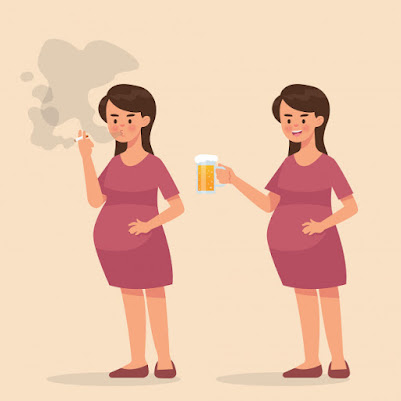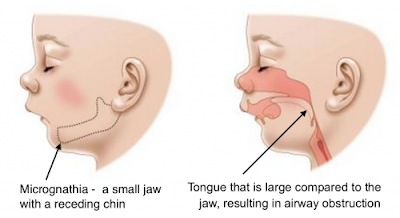CAUSES
A cleft lip or palate happens when the structures that form the upper lip or palate fail to join together when a baby is developing in the womb. The exact reason why this happens to some babies is often unclear. It's very unlikely to have been caused by anything you did or didn't do during pregnancy.
In a few cases, cleft lip and palate is associated with :
- The genes a child inherit from their parents ( although most cases are a one-off).
- During pregnancy consuming smoking and alcohol.
- Obesity during pregnancy.
A lack of folic acid during pregnancy.
 |
"There is no "safe" level of smoking while pregnant. Smoking during pregnancy affects you and your baby's health before, during, and after your baby is born". |
- Taking certain medicines in early pregnancy, such as some anti-seizure medications and steroid tablets.
- In some cases, a cleft lip or palate can occur as part of a condition that causes a wider range of birth defects, such as 22q11 selection syndrome (Digeorge syndrome) and Pierre Robin sequence.
Pierre Robin sequence
Is an association of micrognathia, posterior displacement of the tongue (glossoptosis), and midline cleft of the soft palate. There may be difficulty feeding and, as the tongue falls back, there is an obstruction to the upper airways which may result in cyanotic episodes. |
| Micrognathia and airway obstruction due to tongue fall back. |
DIAGNOSIS
- A cleft lip is usually picked up during the mid-pregnancy anomaly scan done when you're between 18 and 21 weeks pregnant.
 |
| Mid- pregnancy anomaly scan |
- Not all cleft lips will be obvious on this scan and it's very difficult to detect a cleft palate on an ultrasound scan.
- If a cleft lip or palate does not show up on the scan, it's usually diagnosed immediately after birth or during the newborn physical examination done within 72 hours of birth.
- When a cleft lip or palate is diagnosed, you will be referred to a specialist NHS cleft team who will explain your child's condition, discuss the treatments they need, and answer any questions you have.
- You may also find it useful to contact a support group, such as the Cleft Lip and Plate Association, who can offer advice and put you in touch with parents in a similar situation.
TREATMENT
Cleft lip and cleft palate are treated at specialist NHS cleft centers. Your child will usually have a long-term care plan that outlines the treatments and assessments they will need they grow up. The main treatment is:
- Surgery - an operation to correct a cleft lip is usually done when your baby is 3 to 6 months old and an operation to repair a cleft palate is usually done at 6 to 12 months.
 |
| Before and after surgery |
- Feeding support - you may need a device about positioning your baby on your breast to help them feed, or you might need to feed them using a special type of bottle.
 |
| Special type of bottles for cleft lip and palate |
- Monitoring hearing - a baby born with a cleft palate has a higher chance of glue ear, which may affect hearing. Close monitoring of their hearing is important and if glue ear affects their hearing significantly, a hearing aid may be fitted or small tubes called grommets may be placed in their ears to drain the fluid.
 |
| Grommets |
- Speech and language therapy - a speech and language therapist will monitor your child's speech and language development throughout their childhood and help with any speech and language problem.
- Good dental hygiene and orthodontic treatment - you will be given advice about looking after your child's teeth, and they may need braces if their adult teeth don't come through properly.
 |
| Types of braces in adults |
Outlook for cleft lip and palate:
- The majority of children treated for cleft lip or cleft palate grow up to have completely normal lives.
- Most affected children will not have any other serious medical problems are treatment can usually improve the appearance of the face and problems with feeding and speech.
- Surgery to repair a cleft lip may leave a small pink scar above the lips. This will face over time and become less noticeable as your child gets older.
- Some adults who have had a cleft lip or palate repair may be self-conscious or unhappy about their appearance. Your GP may refer you back to an NHS cleft center for further treatment and support if there are any ongoing issues.









Comments
Post a Comment